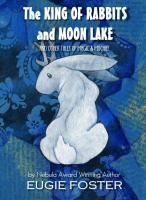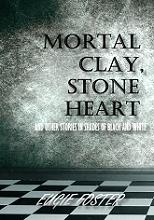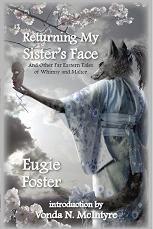When a person’s passionate about what they do, it can make for some pretty obsessive behavior:
– My eating’s been on the scant side this last week. At my day job, I’ve been skipping lunch, opting instead to munch a handful of crackers out of the cache of edibles I keep in my desk so I won’t have to stop writing. And at home, I’ve been bolting my meals so I can get back to work.
– My sleep’s been patchy, and I haven’t particularly felt tired–although, admittedly, Adderall’s a great short-term sleep replacement. I went to bed well past midnight last night and woke before my alarm, eager to read fosteronfilm‘s feedback on my story and start on the first draft pass.
– I’ve been irritated with the driving portion of my commute, even though the roadways have been relatively uncongested (for Atlanta), because all I’ve wanted to do is get on the train as fast as I can so I could open up my laptop and get writing again. And I’ve generally been short-tempered and cranky at anything and everything that’s gotten in the way of me writing.
But finally, the story’s at first draft. I’m drained, strung out, and euphoric. But I think it might be decent . . . I hope. Next up, sending it out for critique.

Writing Stuff
Published:
– The Pseudopod podcast of “Wanting to Want” is up. Actually, it went up last week, and I didn’t realize until yesterday, when I got a note from the reader, Tabitha Smith, saying she liked the story. Still haven’t listened to it (see above re: obsessive writing), but I’m looking forward to doing so. Although I glanced at the comments and they’ve been less than glowing so far.
New Words/Editing:
– 900 words, a title change, a rewrite/editing pass, and “Fire Rabbit of the Clan of Bótù” is at first draft. I’d like to cut it down, since it’s at 9400 words, but at this point, I’m not sure what to cull. Hoping something bubbles up in critique.
Caught a rather embarrassing blunder that I’m glad I detected before anyone else did, and certainly before I submitted it. There are not two weeks between a first quarter moon and a full moon, only one–at least on this planet. Whoops. But, all fixed now.
And I’m waffling on which romanization style to use with regard to my characters’ names. I’m using the Hanyu Pinyin transliteration system, which is the standard of Mainland China, but it doesn’t normally use hyphens, instead stringing syllables together to make a single “word” and/or separating them with a space. However, I’m wondering if hyphenating would make it clearer that my characters’ names are chunks to be spoken as a unit, rather than a Western-style first and last name. However, hyphens are typically only used in Taiwanese names, which are romanized with Wade-Giles, not Pinyin. I’d like to make the hyphenating consistent with the romanization style, but Wade-Giles just bites.
Meh. I’m undoubtedly overthinking this. In my experience, native Chinese speakers don’t particularly care how their language is mangled into English. Hell, my mother spells my stepdad’s given name as a single word, and he spells it as two–which drives me nuts when I’m emailing them, as I don’t want to, y’know, commit the faux pas of spelling my stepdad’s name wrong. But if they think how his name is transliterated to English is too trifling a matter to come to a consensus on between them, it’s probably not something I need to wring my brain over for my story. As fosteronfilm pointed out when I tried to explain to him my dilemma, it’s not like anyone would notice (or care) either way.
|









And yet, we as writers know the silly but still inescapable lure of the Must Get It Right! obsession.
I know that I’ve often spent hours reading over ethnic names, to be sure I got one that both perfectly fit a character and was historically accurate–even though I knew that not only would nobody care, but it wasn’t even a historically accurate story or setting! :-}
I think the term for a writer without some degree of obsession is “unpublished.” 😉
“I’ve often spent hours reading over ethnic names, to be sure I got one that both perfectly fit a character and was historically accurate“
Hah! It’s gratifying to know other writers fixate on details like that. For this latest story, I spent hours researching and reading up on Tang dynasty architecture and furnishings, just for two sentences, maybe a paragraph, of description! Felt rather silly about it afterward, but y’know, I had to get it right.
You’d be surprised what equally obsessive types will notice. I got completely thrown out of a pretty good vampire novel because the author had given her vamp (born in the 15th century in what’s now Hungary) an Irish Gaelic name (one about 6 centuries older, at that.) Book goes flying. History-buff reader begins to rant. –
What do you do for your day job, by the way?
And, yay for surpassing your word count! 🙂
“yay for surpassing your word count!“
Heh. Thanks. ‘Course now what I’m wanting to do is cut for length. But the important thing is that the story’s on the page. And, in the end, a story’s gotta be as long as it’s gotta be.
“What do you do for your day job, by the way?“
I work for the government. I’m a legal editor for the Office of Legislative Counsel of the Georgia General Assembly. It’s a fantastic job, and I love it. Not only do I get to make a living doing something I genuinely enjoy, but the work year is cyclical. When the legislature is in session–about three months of the year–it’s insane: late nights, weekends, and overtime galore. No time whatsoever to write, barely time to eat and sleep. It’s grueling and intense, but also kinda fun. And to make up for that frenetic pace, during the off-session months, things are incredibly laid back. Folks read, watch movies at their desk, surf LJ, and I have plenty of time to write.
it’s a toughie. i pretty much remain
faithful to ping yin and one word per
written character. since most chinese names
are two words, they are separate words
for me. yes, it may trip readers–but
considering you are writing within the
sf genre, so what. there are stranger
names out there. =)
Random stranger here. It seems like a lot of the people big in Chinese American literature (Maxine Hong Kingston, Bette Bao Lord, etc.) don’t use the hyphen, but people are getting more and more used to the Hanyu (with the Xs and Qs) nowadays. I think that it can be pretty obvious about what should be chunked together if you as the author demonstrate to the reader the different ways of chunking the name. For instance, the full name vs. last name-title vs. use-name. The other question is, are you planning to use any other Chinese vocab? If so, are you planning to keep it consistent? Or does it matter? Hope this fuels your thought process. I enjoy reading your LJ, if only to wish I were cool enough to write. 😉
What? Of course you’re cool enough to write! Get to it!!!!
Being totally ignorant of correct Chinese transliteration, I was fine with the hyphens in story names. Thanks for the privilege of letting me read an early draft of this bitter-sweet tale. I hope to see it in print very soon.